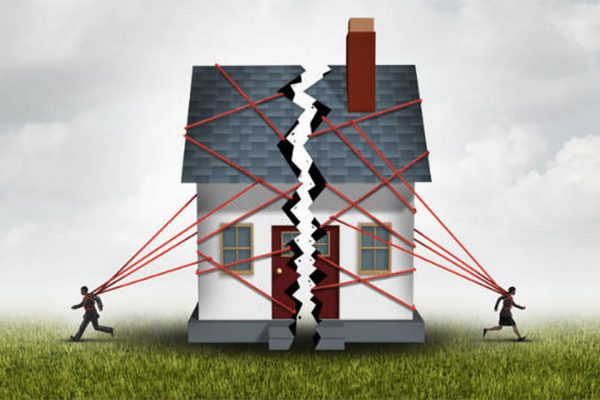
Real estate conflicts can happen during a property transaction. There are five types of real estate conflicts that can take place in property disputes. These disagreements include – breach of contract, duty violation, disputes over boundaries, disputes between co-owners, and hiding property flaws. This article discusses them.
What Exactly Is A Property Dispute?
Property disputes may emerge due to arguments over liability for construction repairs, property borders, legitimate ownership, or any other reason.
A property dispute can include a wide range of people, including:
- Tenants/Neighbors
- Homeowners
- Trespassers
- Landlords
- Members of the family
- Associations of homeowners
- Governmental organizations
Types Of Property Disputes
1. Breach Of Contract
While purchasing a property, a contract between the buyer and seller is signed. Both parties agree to the terms and conditions mentioned in the contract. A breach of contract is a violation of contractual facts and occurs when one or both parties breach contractual obligations. These contracts may include T&C on critical information such as purchase price, closing date, finances, shareholders, commercial lease, equity, etc. If either party to a real estate transaction fails to comply with the contract terms, the other party can sue for breach of contract.
There are two types of a breach of contract.
➔ Material Breach
Any act by the buyer or seller that materially affects the other party constitutes a material breach of contract.
➔ Non-material breach
The other type of breach is the non-material breach, where the actions of one party led to the indirect violation of the breach of contract. In such cases, the party that tried to breach the agreement can be sued for damages.
2. Duty Of Care Violation
Real estate agents and other parties involved in any real-estate transaction owe a duty of care to their clients. If they try to violate the duty of care intentionally, it may harm the clients in some way or another. For example, real estate agents may try to hide any property problem or form a misleading agreement, and so on.
Real estate professionals must act in the best interests of their clients, not their own. In addition, agents must keep customer information confidential and should not disclose any information that might be useful to others.
3. Hiding The Real State Of The Property
One common reason for property disputes is when a property seller might try to hide any flaws in the properties. They don’t disclose the information to the property buyer, and once the buyer later uncovers the flaw, it becomes the reason for a dispute. However, it is important to establish that the property seller unintentionally tried to hide the flaw and was aware of it.
4. Disputes Over Property Lines
Boundaries and surveys are another reason for property disputes in real estate. Sometimes, it can be difficult to demarcate the boundary line between the shared properties, especially in cities and locations with multiple property lines. One good way to prevent disputes over the boundary lines is to construct fences or plant trees on the property’s border. It’s advised not to be negligent and clearly define the boundary line while purchasing a property. Even after fencing, if a neighbor still tries to encroach even a few inches of your land, they can be sued for the same.
5. Disputes Between Co-Owners
A property may sometimes have more than one owner. A co-owner dispute occurs when the joint partners to the property disagree on a property issue. For example- a co-owner might be spending more on their property, let’s say on the construction of the property; in such cases, the co-owner might stop the work and dispute with the other owner.
Final Words
Serious property dispute cases can’t be handled independently and may require the intervention of a third party – real estate attorneys and expert witnesses. They can clarify facts and ensure speedy dispute resolution in such cases.
SUBSCRIBE FOR MORE! HERE’S WHY:
1. You get 7 free books
2. You get the best money & productivity articles
3. You get the latest updates – all in one email per week
You have Successfully Subscribed!
